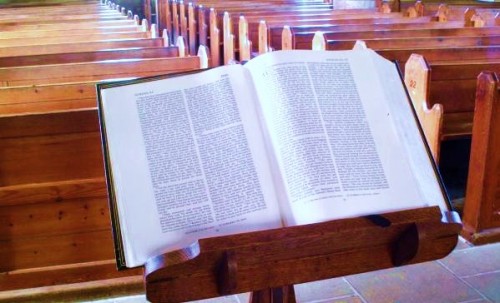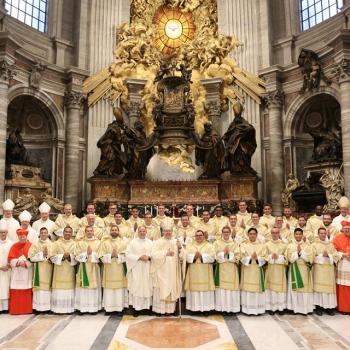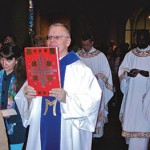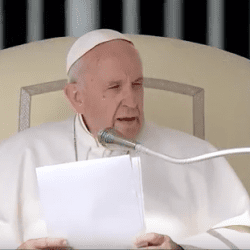From AFP — and note the surprising reference to Martha and deacons:
Tired of seeing their holy texts used to justify the subjugation of women, a group of feminist theologians from across the Protestant-Catholic divide have joined forces to draft “A Women’s Bible”.
As the #MeToo movement continues to expose sexual abuse across cultures and industries, some scholars of Christianity are clamouring for a reckoning with biblical interpretations they say have entrenched negative images of women.
The women we know from translations and interpretations of Bible texts are servants, prostitutes or saints, seen dancing for a king or kneeling to kiss Jesus’ feet.
altogether to be cast aside, an eclectic group of theologians instead insists that if interpreted properly, the Good Book can be a tool for promoting women’s emancipation.
“Feminist values and reading the Bible are not incompatible,” insisted Lauriane Savoy, one of two Geneva theology professors behind the push to draft “Une Bible des Femmes” (“A Women’s Bible”), which was published in October.
The professor at the Theology Faculty in Geneva, which was established by the father of Calvinism himself in 1559, said the idea for the work came after she and her colleague Elisabeth Parmentier noticed how little most people knew or understood of the biblical texts.
“A lot of people thought they were completely outdated with no relevance to today’s values of equality,” the 33-year-old told AFP, standing under the towering sculptures of Jean Calvin and other Protestant founders on the University of Geneva campus.
In a bid to counter such notions, Savoy and Parmentier, 57, joined forces with 18 other woman theologians from a range of countries and Christian denominations.
The scholars have created a collection of texts challenging traditional interpretations of Bible scriptures that cast women characters as weak and subordinate to the men around them.
Parmentier points to a passage in the Gospel of Luke, in which Jesus visits two sisters, Martha and Mary.
“It says that Martha ensures the “service”, which has been interpreted to mean that she served the food, but the Greek word diakonia can also have other meanings, for instance it could mean she was a deacon,” she pointed out.
Read the rest.













